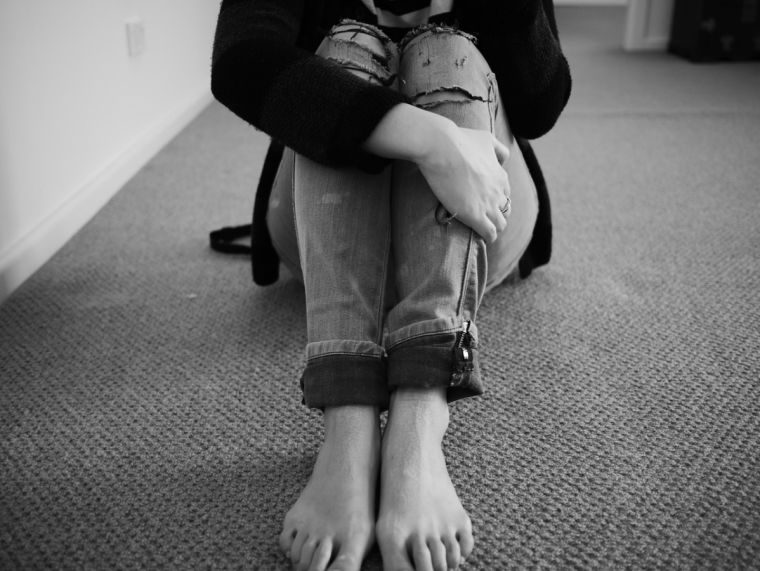The evil of modern slavery is now 'prevalent' in the UK. Here's how the Church of England is stepping up to the challenge

The Church of England this week announced a new, three year project aimed at helping people in dioceses across the country tackle modern slavery.
The Clewer Initiative, which launches in October, is the latest in a series of moves the CofE has made to help the government address the phenomenon and was announced by Philippa Rowen, the lay chaplain to the Bishop of Derby.
More than 200 years after Britain abolished slavery, there are still an estimated 45.8 million men, women and children trapped in modern slavery, with up to 11,700 potential victims in the UK alone, as its website points out.
The announcement comes a year after the Prime Minister, Theresa May, announced a £33 million boost for the fight against human trafficking and modern slavery, which itself followed the introduction of the Modern Slavery Act in 2015.
And it comes, too, in the context of a new report from the National Crime Agency (NCA) which said that modern slavery is now 'prevalent' across the UK, affecting 'every large town and city in the country'. Figures show that in 2016 the number of cases hit 3,805, with 'modern slaves' coming from 108 different countries, including the UK.
William Kerr, the NCA director of vulnerabilities, said 'we need those communities to be our eyes and ears'.
Now, the CofE has pledged to help with that need. 'The Church of England, with a presence in every parish, is uniquely placed to be those eyes and ears, and to spread this message further. We believe that the tools to end modern slavery already exist within the local community, and that the Church has a primary responsibility in leading these efforts,' said Rowen.
'We need communities that have their eyes open, who are aware enough of their surroundings that they can say when something doesn't look right. When the man cleaning their car has no safety equipment, and looks underfed and tired. When their neighbours live-in nanny never seems to leave the house, and is too frightened to talk to them. When the holiday let at the end of the road is being visited by different men all through the day and night.'
Rowen pointed out that churches are already running English classes for survivors, for example, and joining with other denominations to raise awareness of the issue. Work in the dioceses of Derby, Portsmouth, Southwell and Nottingham, and Southwark is already underway.
The Derby diocese has become a key member of the Derby and Derbyshire Modern Slavery Partnership, uniting with the police and social services to bring an end to slavery in Derbyshire.
One figure who told Christian Today that he was 'delighted' to welcome the Clewer Initiative is Jeremy Cullimoore, the priest in charge of the Lincoln High Street Parishes.
Cullimoore hit the headlines this week when the vicar, who previously served in the army in Bosnia, spoke out powerfully against the captors of local slaves he helped.
He was speaking after 11 members of the notorious Rooney family were convicted of modern slavery and fraud offences, after homeless and other vulnerable people were forced to live in squalid caravans and sent out to work for little or no money while the Rooneys enjoyed lavish lifestyles on the back of their 18 victims' toil.
Cullimore told Lincolnshire Live that in 2014 and 2015 six escaped slaves were given refuge from the Rooneys through the BeAttitude project at St Mary-le-Wigford Church.
He said: 'We passed people to the Salvation Army and encouraged victims to talk to the police. We operated a day centre at the church and staff from the Nomad Trust would have to come over to escort people from us to the night shelter in Monks Road because the Rooneys' white vans would be waiting in the street. It was like escorting schoolchildren on a trip...I would say the Rooneys are as bad as any of the people I came across in Bosnia.'
Cullimoore explained the context of his efforts to Christian Today: 'Our involvement with modern slavery began in 2010, long before the new legislation, when Rev Liz Jackson and I worked in a community created among the marginalised here in Lincoln, called BeAttitude. The stories we heard were both heart-rending and appalling and hard to believe possible in a city like this in the 21st century. We had a steep learning curve and were fortunate that Lincolnshire Police, other churches and county and city officers took the situation seriously and this led to the recent successful convictions.'
He added of the new initiative: 'The Church of England is very well placed to not only highlight the issues and help people respond where they suspect there is slavery, but also to support projects and initiatives working among the poor and most vulnerable to protect them from or nurture them after experiencing this abuse.'
This is not the first time the CofE has got involved in tackling trafficking and modern slavery.

The Bishop of Derby, Dr Alastair Redfern, spoke in 2015 at a conference inside Lambeth Palace of how the church can work with statutory and non-statutory agencies at a local level to care for the victims of trafficking and human slavery through initiatives such as training and awareness days and support networks.
Rowen has previously welcomed the government's efforts. 'In a time of budgetary cuts and the paring down of public services, the Prime Minister's pledge of £33 million to go towards eradicating modern slavery is significant,' she has said.
'It sends a clear signal not only that slavery is unacceptable – an "evil" as Mrs May put it – but that it is a reality in our society and something that we all collude in. The exploitation of vulnerable people is due to market forces dictated by those that have purchasing power – whether that is for cheap fashion on the high street or sexual gratification on the back streets. It should be welcomed that the Prime Minister has acknowledged that slavery and exploitation are part of a process which can begin abroad in countries where there are few employment opportunities.
'Young people have little choice over their futures other than they need to earn money to support themselves and their family. It is quite right that international development budgets should stimulate local economies not just improve literacy rates. Indeed a first class degree is of little use to a young woman if she isn't able to secure a decent job in her community – she is immediately vulnerable to trafficking and exploitation – work that she has no choice but to take.'
She added: 'Despite the seemingly gloomy situation and impossible task that the Prime Minister has set, there is an opportunity for the Church to step up to the table; to provide a unique service that is absent from governmental strategies to combat modern slavery – that of loving the stranger. The Church of England has an unrivalled network across this country. We might have the media claiming that the church is in decline but nevertheless one million people in this country alone turn up regularly to hear what their vicar or lay minister has to say about furthering the Kingdom of God. The Anglican Communion is a huge resource with strong leadership in the most deprived countries of the world – places which have the highest instances of slavery and exploitation.'
Now, Rowen says that on Sunday October 15, 'we are encouraging all churches to join together and celebrate Freedom Sunday, giving their worship over to raising awareness of modern slavery. We are also developing a network of practitioners committed to sharing models of best practice to resource the Church. The victims of modern slavery are hidden in plain sight, but together we can find them and bring light to this darkness.'
The Clewer Initiative is named after the Clewer House of Mercy, a purpose-built Victorian convent and shelter in Windsor. The Sisters now reside at their new convent in Rippon College, Cuddesdon, and consider The Clewer Initiative part of the legacy of their Order.











